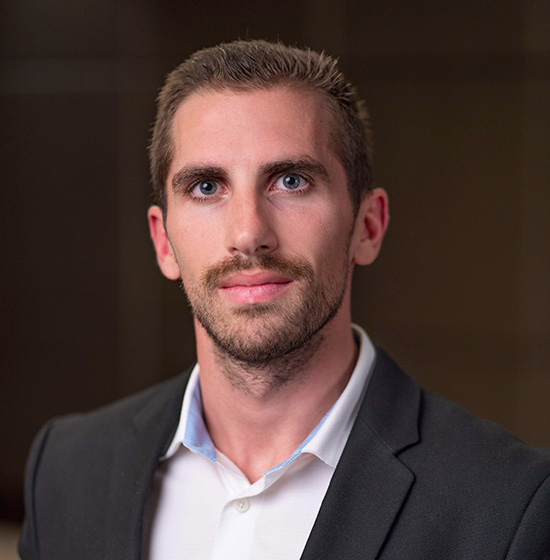In order to increase the resilience of their supply chain, resolve dependencies and reduce susceptibility to disruptions, German and other European companies are increasingly seeking to diversify their supplier network and look for new, alternative procurement sources. In the first two articles of our Vietnam series, Production Location Vietnam and Vietnam at a Glance – Emerging Market in Southeast Asia, we explained why Vietnam offers a promising perspective and how the market entry can succeed. In a joint interview, Adrian Biasi, Head of Commercial at SEKO Logistics Vietnam, and Ralf Boelicke, Head of Strategic Sales at Hermes International, now shed light on the challenges companies face when entering the market and explain how the two experienced service providers, through their strategic partnership, can support the development of logistics and supply chain management through consulting and implementation.
Competitive costs, investment incentives and free trade agreements make Vietnam an ideal location for foreign companies. What other advantages do they gain from considering Vietnam for a (partial) relocation of production, for example, as part of a China +1 strategy?
Adrian Biasi: Vietnam is making targeted investments in the development of a modern ecosystem for science, technology and innovation. In this context, due to its 3,000 km long open coastline, the Asian country is not only strategically excellently located as a starting point for global trade, but it is also attractive due to its geographical proximity to China. Trade and procurement between the two countries are flourishing, and with Hanoi and the surrounding area, northern Vietnam in particular benefits from its proximity to the border. This also offers clear advantages to Western companies looking to relocate production, expand their supply chain or source raw materials from China.
Vietnam also wants to position itself as openly as possible in terms of economic policy. In this context, it has an agreement with more than 80 countries and territories worldwide to avoid double taxation. When it comes to national skills development, the country is also striving for an increasingly well-founded qualification of its large young workforce.
Ralf Boelicke: As an emerging country for the global supply chain, Vietnam is a location with rapidly growing importance. The local production landscape has evolved in recent years – an increasing number of modern manufacturing facilities are preparing to cooperate with foreign companies.
Nevertheless, there are still some challenges associated with this location – in the area of logistics, for example, local know-how is extremely important for smooth processing. In this context, foreign companies can benefit greatly from strategic partnerships of experienced service providers. After all, we can jointly offer in-depth regional know-how and comprehensive expertise in the international movement of goods.
What are examples for the organizational and logistical challenges that you mentioned?
Adrian Biasi: When entering the Vietnamese market or setting up a company in Vietnam, companies must take into account, for example, that certain licenses, permits, legal checks and information on budget and cost planning must be provided. It is also important to identify the ideal location – the north and the south are both attractive according to different criteria. Central Vietnam offers particularly cost-effective opportunities, but not for all industries.
The greatest challenge is the infrastructure, which is still in a state of flux in the areas of trade, transportation and information technology and requires further networking and standardization. Compared to already established markets that have grown over decades, the Vietnamese market as a whole is still in a stage of development – but it is progressing rapidly.
Although the transport infrastructure has been improved considerably in recent years and logistics costs have been reduced, they are still higher than in other countries such as Thailand, China and Malaysia. The construction of warehouses and depots is also still at an early stage. For high efficiency of future operations, it is therefore strategically very important to proceed in a planned and targeted manner right from the start.
Ralf Boelicke: Although Vietnam has made great progress in recent years, the road as well as rail network is still under construction. Especially in rural areas, transporting goods can be time-consuming, and logistics facilities such as warehouses and distribution centers are often located in remote places, far away from ports and production centers. But these challenges should not deter pioneering companies from investing in this promising market. After all, the involvement of foreign companies promotes further expansion, and the obstacles encountered so far can be easily overcome with experienced local partners. We rely on the cooperation with SEKO for our customers and thus fully meet the local requirements.
How can SEKO, as a local service provider, support companies in successfully gaining a foothold in Vietnam?
Adrian Biasi: SEKO has a regional network with its own branches in the Asia-Pacific region (APAC), including a national presence in Vietnam. In addition, we can draw on comprehensive capacities in the areas of contract logistics, international freight forwarding services and customs clearance – among other things, our customers benefit from more than 200,000 square meters of goods and bonded warehouse space, specialized container freight stations and sophisticated cold chain logistics. For transportation, we have over 200 of our own trucks with 400 chassis connecting all major seaports and airports in Vietnam. Further, our team of specialists provides companies with profound expertise. With our diverse customer portfolio covering the major industries in Vietnam, our experience in the market is extensive and multi-faceted.


Ralf Boelicke, Head of Strategic Sales at Hermes International.
Ralf Boelicke: Unexpected challenges on site can sometimes be much more difficult to overcome without the appropriate know-how. An experienced partner provides valuable support in these situations and helps to ensure that goods movements run smoothly and efficiently. With SEKO, we have a strong cooperation partner in Vietnam who has its own transport capacities and is familiar with the culture, customs and legal requirements.
In addition to this comprehensive expertise, many years of experience and local market knowledge, the company also has an excellent workforce. This is not a given: while there is a large workforce in Vietnam, there is currently a shortage of professionals with experience in the logistics environment and supply chain management. This can be very challenging when organizing and monitoring the supply chain. A partner with well-trained experts therefore has great value.
How do business customers benefit from the partnership between SEKO and Hermes? And how does Hermes International support its customers organizationally and technologically in the movement of goods to and from Vietnam?
Ralf Boelicke: In order to make the market entry efficient and successful, in addition to good logistical planning, a smart supply chain management is recommended right from the start.
Together with SEKO, we offer our customers a secure organization and also ensure the seamless monitoring of the supply chain. This is achieved through the introduction of an SCM tool, which enables a complete transparency of goods movements and the optimal planning of supply chain processes.
Thanks to the strategic partnership, Hermes is always close to its customers – even without its own local sites. Together, we can offer customized logistics solutions across the entire transport chain and, if necessary, provide expert advice on optimization potential. Our comprehensive know-how for the international transport of goods by air or sea freight to and from Vietnam as well as our expertise in warehousing and order picking contribute to this.
Adrian Biasi: Customers also benefit from our experience with Vietnamese export and import regulations. Customs policy is quite strict, and some processes are still handled manually. Without specialist knowledge, that can be a hindrance. For example, incoming goods must always be declared summarily to customs in advance, and different deadlines apply depending on the means of transport selected. In addition, there are inconsistent freight control procedures at ports and airports.
Ralf Boelicke: SEKO knows the regulations and hurdles very well and can therefore put our advice on a good footing. With our specialized customs team, we support customers in the preparation of shipping documents and customs declarations, thus rounding off our service in logistics and supply chain management for goods movements between Germany and Vietnam. Overall, we can say that our partnership offers a total package of consulting and implementation that can significantly contribute to a successful market entry in Vietnam.
Mr. Biasi and Mr. Boelicke, thank you very much for the interview.
Would you like to learn more about the opportunities and challenges of the Vietnamese market? Click here for the first two articles in our Vietnam series:
Vietnam as a production location: Local know-how for market entry

